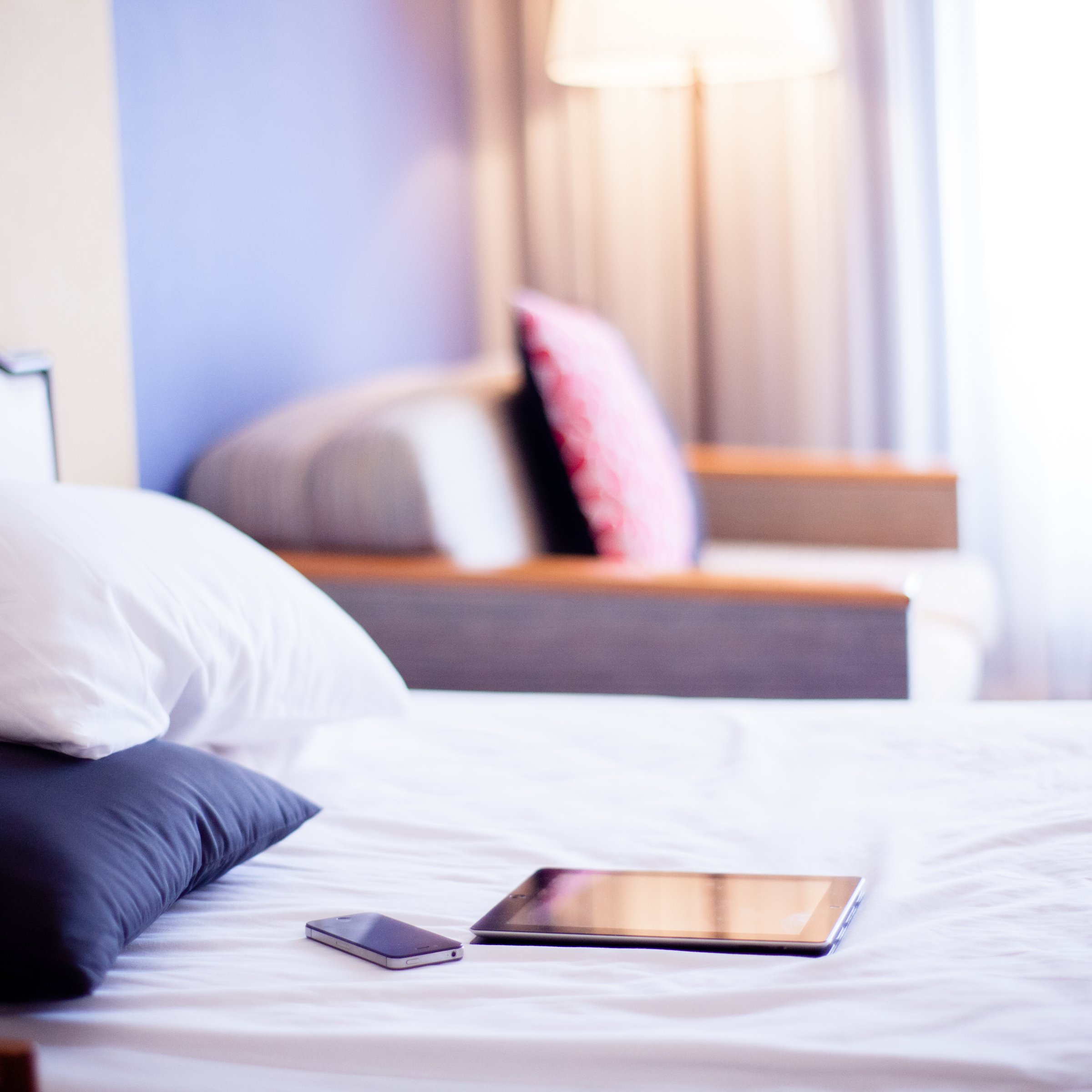
Most healthy-living formulas consist of two basic tenets: Eat less and move more. Truthfully, it should be more of a three-pronged approach: Eat well, move more, and get adequate sleep. The first two steps are made more effective by the third—and when you don’t have enough sleep, food and movement aren’t enough to keep your body feeling well and performing at its optimal level.
Unfortunately, getting good sleep is a struggle many of us face, and it’s not entirely a modern dilemma. Yes, blinking cell phones, bright alarm clocks, and dinging computers are relatively new in human history and may make the bedroom less relaxing and more taxing, but other factors can interfere with your sleep pattern, too. This month, get serious about getting more shut-eye. Here are some real solutions to the most common sleep obstacles.
1. Lights
“Light at night can delay your circadian rhythm, or your body’s natural clock,” says Kelly Glazer Baron, PhD, assistant professor of neurology at the Northwestern University Feinberg School of Medicine. The color of the light may make the biggest difference. Evidence suggests our bodies are most sensitive to blue light, which is emitted from many popular light sources, including energy-efficient bulbs and computer screens.
The fix: Turn down your lights an hour or so before bed. Hang blackout curtains or wear a sleep mask if light shines continuously.
2. Technology
You’ve probably heard that your tablet, smartphone, and other small-screen devices could be responsible for bouts of insomnia—the lights they emit are mostly on the brain-activating blue wavelength. Still, the National Sleep Foundation says more than 95% of Americans use some type of tech gadget within an hour before going to bed. The more time you spend on the devices, the more wired your brain will be, and the more wired your brain is, the less sleep you’re likely to get.
The fix: Check Facebook one last time at least an hour before you tuck in. Then turn off your device and give it a rest until morning. “You can also download programs like f.lux (justgetflux.com) that can change the spectrum of your computer screen to reduce the blue light,” says Baron.
3. Temperature
The body’s core temperature decreases as we sleep. If it’s too warm in your bedroom, your body can’t cool properly, and people with a higher core body temperature are more likely to experience insomnia and sleeplessness.
The fix: The ideal bedroom temperature, says Baron, is around 65°. As a bonus, a colder bedroom may boost your metabolism. A recent study in Diabetes found that people who sleep in cool rooms–66°–have increased metabolism and energy expenditure even in their waking hours.
4. Stress
Unfortunately, anxiety can create a cycle of sleeplessness: It makes sleep more difficult, and sleeplessness drives up anxiety. “Worry and rumination interfere with the ability to relax and go to sleep, and then stress can cause middle-of-the-night awakenings and waking up too early,” says Baron.
The fix: Here’s a throwback relaxation technique that’s worth a try: lullabies. A study in the International Journal of Nursing Studies found that people who listened to soothing music for 45 minutes before their bedtime spent more time in restorative REM sleep. And if you still can’t sleep, don’t wallow in your sheets. “Get out of bed until you feel sleepy,” says Baron. “While you’re out of bed, do something fairly nonstimulating, like reading a book. Wait until you’re sleepy; then get back in bed.”
Is 8 Hours Really Necessary?
Most likely it is. “Researchers amazingly still don’t know how much sleep is enough,” says Baron. “But studies consistently show that less than five hours per night is associated with negative health effects, and it looks like six to eight hours is associated with the best outcomes.”
But what about people who swear they don’t need more than five hours of sleep a night? “They may be using caffeine and other techniques to stay awake during the day. They really could use the sleep and are just masking it,” says Baron. “People never get accustomed to sleep loss, but they do become less aware of how impaired they are, even if performance continues to decline.”
5 Horrible Habits You Need to Stop Right Now





This article originally appeared on CookingLight.com.
More Must-Reads from TIME
- How the Economy is Doing in the Swing States
- Democrats Believe This Might Be An Abortion Election
- Our Guide to Voting in the 2024 Election
- Mel Robbins Will Make You Do It
- Why Vinegar Is So Good for You
- You Don’t Have to Dread the End of Daylight Saving
- The 20 Best Halloween TV Episodes of All Time
- Meet TIME's Newest Class of Next Generation Leaders
Contact us at letters@time.com